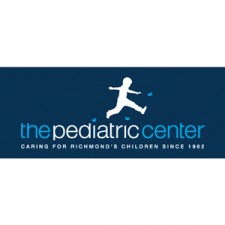Back-to-school time usually means a visit with the pediatrician for many school-age children. Completed sports forms and school physicals are necessary for participation and school enrollment and allow doctors an opportunity to discuss growth, development, and preventative healthcare for your school-age child.
Of the many questions we field, one of the most polarizing for many parents remains: Which vaccines should my child receive? According to the Council on Virginia’s Future, only 77 percent of all 19- to 36-month old children are adequately vaccinated. Given the new vaccine recommendations for school-age children (primarily, meningococcal, Tdap, HPV, and Hepatitis A) school-age and adolescent children fall much lower within compliance.
We doctors need to do a better job of recommending vaccines. When we do, parents tend to follow our advice. Candidly, however, many of us are fatigued by the hundreds and even thousands of conversations we’ve had about why we believe vaccination is safe and important. We are passionate, but we don’t want to be pushy.We recognize that parents are trying to make good choices and that their concern is based on a parental instinct to protect children, but we are frustrated that some of these parents persist in opposition despite clear and convincing evidence of safety and efficacy.
And, just to be clear: Vaccines are safe.They are effective. I encourage you to review reputable sources from the American Academy of Pediatrics and the Center for Disease Control. One of the best resources is at the Children’s Hospital of Philadelphia’s Vaccine Education Center. A visit to their website will answer any question you have about vaccines in a detailed, honest, and respectful fashion.
For parents who don’t follow their pediatrician’s advice, one of the most Common reasons given is that the “vaccine isn’t needed.” The direct benefits of prevention are quite simply difficult for parents to recognize in their day-to-day lives.When was the last time you spoke with a neighbor who said her son remained in school and graduated because he didn’t get meningitis. Has anyone ever read a headline that said, Young woman not diagnosed with cervical cancer because of HPV vaccination as a preteen?
We don’t see and feel the risks in our community, amongst our friends and neighbors, and so the need to prevent that risk seems miniscule.
However, that sense of comfort exists precisely because vaccines are so effective.Today’s parents lack firsthand knowledge about the devastation of some vaccine preventable illnesses. But in 1955, when the polio vaccine arrived, parents in Virginia lined up for hours to get their children vaccinated. They had often seen for themselves the tragedy of a neighbor’s paralyzed child or tragic death. Sometimes, they had fallen victim to the consequences of the epidemic themselves. They kept their own children home and away from crowds; swimming pools were closed and traffic was rerouted.
Don’t we all know a friend, a sister, or a mother with a history of an abnormal pap smear or a diagnosis of cervical cancer? About 70 percent of these cancer patients could have been spared the anxiety, pain, and suffering of that diagnoses if they had been fully vaccinated with the HPV vaccine series that was approved in 2006 in the United States by the FDA. Is the health of a young child today any less important than the health of a young child in 1950 at risk for polio? There were about 10,000 cases of paralytic polio in 1950. Just about as many cases of HPV-related cancer are diagnosed every year. Shouldn’t parents be standing in line for these vaccines as well?
As medicine advances, it is likely that vaccines will begin to address more diseases like HPV, diseases that don’t happen suddenly, but that occur slowly, over time, and that may be influenced, in one way or another, by our behavior. If and when that happens, I fear that there will become even more people who take a path of selective vaccination. Those who choose to vaccinate their children against some illnesses, but not against others.
For some parents, this can have devastating effects. Just recently, a report was published about a previously healthy 15-year-old who died of chicken pox in 2009. Her parents had chosen to vaccinate her against some vaccine preventable illnesses, but she did not receive the vaccine against chicken pox.
I have no doubt that these parents chose the path they did with hopes of providing the best care for their child. I would imagine they put a lot of thought into what they believed was the best course. Perhaps they hoped to protect her from vaccine-related side effects or maybe they wanted to spare her the discomfort of a shot. I cannot imagine, however, that they would not change their minds about that vaccination had they known exactly what vaccine preventable disease would ultimately take their daughter’s life.
At a recent conference, a colleague compared full vaccination with the correct use of car safety seats and seatbelts. If a small, safe, routine act has the potential to protect children from immeasurable harm, why would we withhold it? Would any parent buckle one strap only to leave the others loose? For me, the simplicity in this comparison is powerful and persuasive. I hope it is for you too. 




